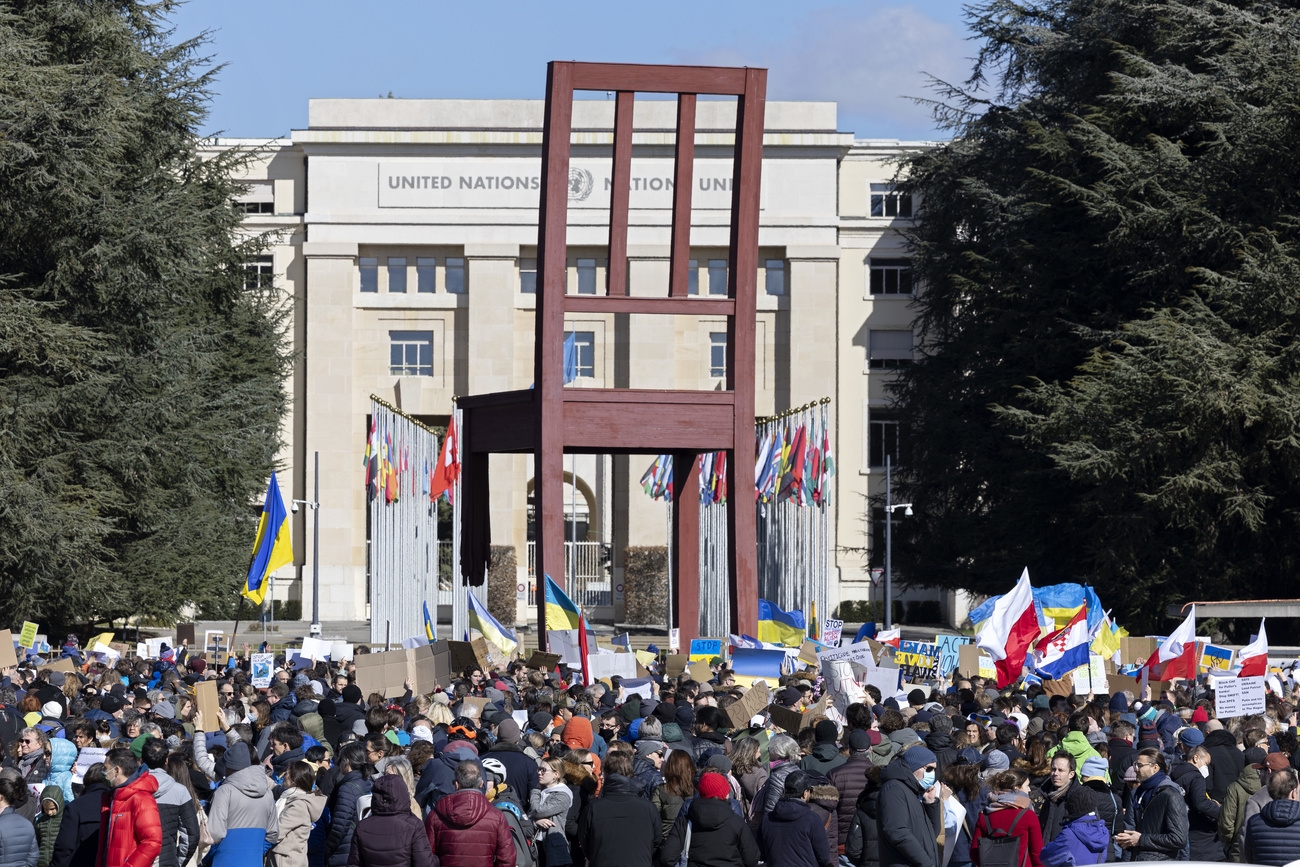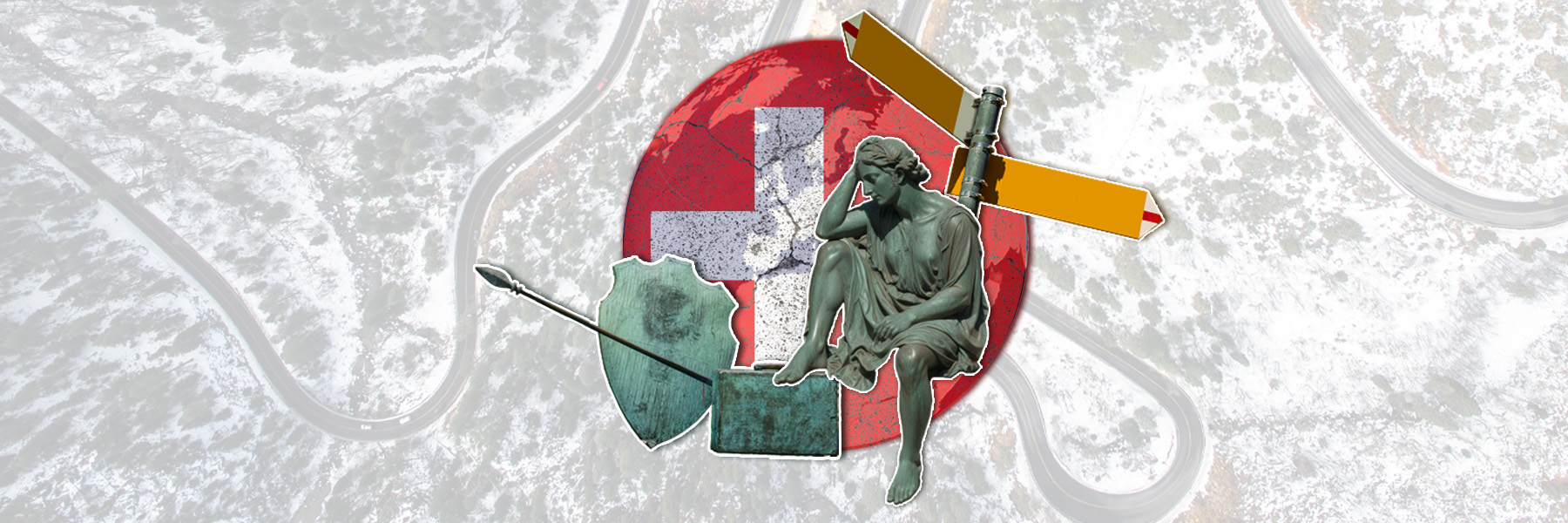One year of the Ukraine war: What are the consequences for Switzerland?
Will Switzerland's famed neutrality fall? Does the UN in its current form still make sense? One year after Russia's attack on Ukraine, these and other difficult questions must be asked.
The war in Ukraine can seem far away from Switzerland but in many ways it is not. More than 75,000 refugees from the conflict sought protection in Switzerland last year. Not since the Second World War, nor even at the time of the Balkan War, have more people been admitted.
Life worlds have been colliding ever since. While the Ukrainians, especially women and children, worry about their relatives and build a transitional existence, the locals have been told to take shorter showers to avoid an energy shortage in winter.
Given these contrasts, living together worked surprisingly well. The wave of solidarity that swept Switzerland a year ago has not turned into the opposite. To date, only little criticism has been voiced, even if there are factual problems, for example with accommodation or labour integration. Only about 15 per cent of the refugees have found a job in Switzerland so far.
The people who have come are one reality of the war that has reached Switzerland. The other is the enormous political pressure – on neutrality, the handling of Russian assets, the export rules for war material.
Is neutrality falling? One can certainly ask this question. For years, the discussion about political core values in Switzerland was not as charged as it is at present. But what changes can be expected, where has Switzerland moved, where will it still move?
We have summarised the status quo in an analysis and venture a prognosis: from arms deliveries to the future handling of Russian oligarch money.

More
How the war in Ukraine has changed Switzerland
Multilateral Geneva is also under pressure. Diplomacy in the UN bodies is coming to a halt, the war is dividing the members into camps and putting a strain on cooperation even where security policy is not actually on the agenda.
It is not only the Russian ambassador Gennady Gatilov who is critical of the work of the UN bodies. Other top diplomats are also concerned that important global fields of action such as health and nutrition are being neglected.
What next? This is the fundamental question in Geneva. The UN is built on cooperation and discourse, now Russia is increasingly isolated. Is multilateralism only possible if certain basic values – specifically international law – are demanded of everyone? Or is there a pragmatic multilateralism that seeks cooperation where possible?
In her article, my colleague Akiko Uehara brings together the voices of the ambassadors of Russia, China, France, Great Britain, the USA and Switzerland, among others, and spans the spectrum from the critical situation surrounding Ukrainian grain to the banning of Russian athletes by the Olympic Committee.

More
International Geneva caught in the crossfire of the Ukraine war
A selection of other recently published articles on Ukraine, Switzerland and international organisations in Geneva can be found here:

More
Why Russia sees satanic powers at work in Ukraine

More
What does the future hold for Swiss neutrality?

More
Belarus is not like Ukraine – and why that matters

More
‘Switzerland has lost its opportunity to mediate for peace in Ukraine’

In compliance with the JTI standards
More: SWI swissinfo.ch certified by the Journalism Trust Initiative









You can find an overview of ongoing debates with our journalists here . Please join us!
If you want to start a conversation about a topic raised in this article or want to report factual errors, email us at english@swissinfo.ch.